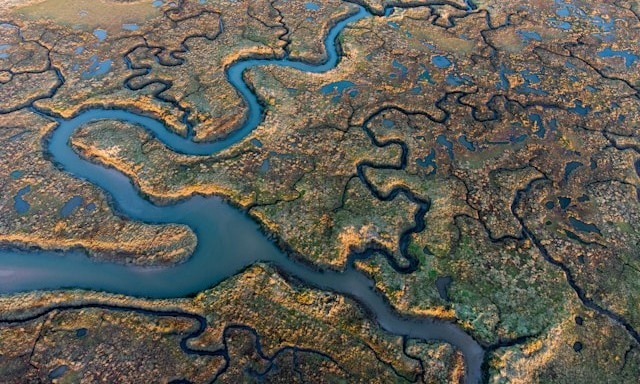26.09.2024
Partnering with a future-focused bank
Launched in January 2016, imagin has already reached more than a million customers. They are Spain’s …
)
In the race to decarbonise the
built environment
, few issues are as critical as tackling embodied carbon in buildings. Unlike operational carbon, which comes from heating, cooling, and running a building, embodied carbon is the sum of emissions generated by construction materials, transport, and building processes. Globally,
embodied carbon accounts for around 11% of greenhouse gas emissions
, making it a priority for developers seeking to align with net zero targets.
For the wider industry, Ferne Park demonstrates that sustainable development and commercial success can go hand in hand.
At Ferne Park in Fareham, Hampshire, Kingsbridge has taken this challenge head on. The project is designed as a flagship sustainable industrial development, combining world-class construction standards with bold carbon reduction and biodiversity ambitions. Working in partnership with Earthly, Kingsbridge has balanced the project’s embodied carbon footprint and invested in
that deliver measurable benefits for nature, biodiversity and communities.
Ferne Park comprises three Grade-A warehouse and logistics units, spanning over 100,000 square feet, set to be available for occupation in spring 2025. But what sets the scheme apart isn’t just scale or prime location. It’s the decision to embed sustainability from the very start.
The development is targeting net zero embodied carbon, alongside an EPC A+ rating and the highest possible BREEAM ‘Outstanding’ certification. Only 3% of industrial developments nationally achieve this level of BREEAM accreditation. For Kingsbridge, these aren’t optional add-ons but core design principles, ensuring Ferne Park becomes a benchmark for future-fit industrial space.
Key sustainability features include:
Photovoltaic renewable energy generation on site
EV charging infrastructure
Enhanced thermal performance with improved U-values
10% roof lights to maximise natural light
Offset residual carbon through nature-based solutions
A commitment to
25% biodiversity net gain
Together, these features mean the buildings are designed to be carbon-negative in operation while also tackling their upfront embodied carbon footprint.

Even with an ambitious design, some embodied carbon emissions are unavoidable in construction. To address this, Kingsbridge partnered with
in 2025 to balance Ferne Park’s footprint through high-quality, independently verified projects.
Their portfolio includes:
: Restoring degraded farmland across the Indo-Gangetic Plains, this project spans over 41,000 hectares. It has improved water efficiency by 22%, boosted farmer incomes by up to 16%, and avoided tens of thousands of hectares of crop residue burning. By 2029, it aims to expand to more than 800,000 hectares, transforming soil health and farmer resilience.
: Protecting 47,000 hectares of carbon-rich peatland forest in Rimba Raya, this project prevents conversion to palm oil plantations and avoids more than 100 million tonnes of CO₂ emissions. It also protects habitats for endangered orangutans and supports local communities with clean energy, healthcare, and sustainable livelihoods.
By investing in these projects, Kingsbridge ensured Ferne Park achieved
net zero embodied carbon
, while also contributing to global nature restoration.
Through these combined efforts, Kingsbridge balanced
emissions linked to Ferne Park. Alongside this, the development is on track to deliver BREEAM ‘Outstanding’, EPC A+ and biodiversity net gain targets.
For the wider industry, Ferne Park demonstrates that sustainable development and commercial success can go hand in hand. Industrial projects don’t need to be environmental liabilities. With the right design, construction practices and partnerships, they can actively contribute to climate and nature goals.
The construction sector is under growing scrutiny to reduce embodied carbon in buildings. Regulatory frameworks are tightening, investors are demanding more robust Impact & Sustainability strategies, and occupiers increasingly expect green credentials as standard. Ferne Park shows what’s possible when sustainability is integrated into every stage of a project from design and materials to offsetting residual emissions.
By proving that industrial development can be carbon-balanced, Kingsbridge is setting an example not only for its peers but for the wider built environment sector. The lessons learned here will inform how future developments meet the twin challenges of climate change and biodiversity loss.

As Ferne Park moves toward completion in spring 2025, it will stand as a model for others to follow: a development that delivers commercial value while also safeguarding the future of our planet.
Kingsbridge’s partnership with Earthly highlights the importance of collaboration between real estate and nature-based solutions. Together, they’ve shown how embodied carbon in buildings can be addressed meaningfully, transparently and with benefits that go far beyond compliance.
Learn more about our partnership and view Kingsbridge's customer story
Related articles